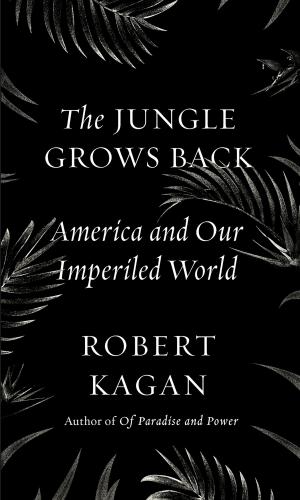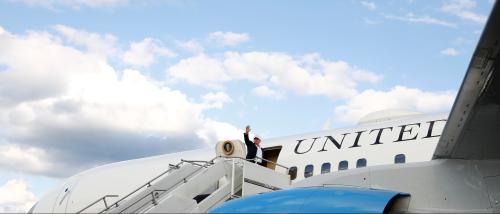With Bob Kagan’s latest book—“The Jungle Grows Back: America and Our Imperiled World”—now the talk of the town (along with one or two other things!), it is time to say it: I am a Kaganite. To be sure, I have some differences with Bob, but there is no modern author who has taught me more, or changed the way I view the world more, than he has.
Often, modern liberalism seems to place too much faith in institutions and in the inevitable progress of human civilization. Realism often errs in the other direction, and can be cynical and deterministic. Neo-conservatism places too much stock in American exceptionalism and tends towards overconfidence about the use of U.S. power. These three paradigms leave me wanting.
To my mind, a Kaganite believes most or all of the following:
- The post-1945 order is indeed “the world America made” and still depends largely on American power to undergird it;
- For all its failings, and all of America’s many mistakes, that very successful world order has been an historical anomaly and it is now in significant peril;
- The order’s fragility is due to the facts that humans and their institutions remain deeply flawed. Left unchecked, the jungle will indeed grow back (or, as Bob writes: “The liberal world order is like a garden, ever under siege from the forces of history, the jungle whose vines and weeds constantly threaten to overwhelm it”);
- Americans are not necessarily smarter or more ethical than others. Indeed, over its history, America has been a “dangerous nation,” especially and at first in our own Western hemisphere. Americans come from mythical Mars in terms of their assertiveness and their willingness to use force. The narrative we often tell ourselves—that Americans would prefer isolationism and pacifism if the world would just leave us alone—is a myth;
- The geographic position of the United States, and the fact that it is a melting-pot nation deriving its identity and its purpose chiefly from a set of ideas and ideals, mean that it has a special ability—and thus a special responsibility—to undergird the global order, especially in terms of security and economics;
- Yet most Americans do not understand or accept these realities. They need to be constantly reminded and persuaded;
- Progress in world politics is not impossible, but it is always difficult and always fragile. It is also reversible; and
- Despite what is often stated as fact, America is not a status-quo power. It is a disruptive force in world politics, unapologetically promoting democracy and market-based economics as well as human rights. Nor should it apologize.
I have my differences with Bob: His new book seems slightly too dark about the state of the world, and nuclear deterrence and memories of the world wars may help us keep the peace more than he thinks. New threats like climate change and massive urbanization around the world may deserve a more central place in his strategic framework. China may merit slightly more empathy as a rising power than he grants it (though only slightly more, I concede).
But for identifying and clearly explaining the chief forces driving human history, Bob is brilliant. Few rival him, and few write as well either. At least at this juncture in U.S. and world history, please mark me down as a Kaganite!
The Brookings Institution is committed to quality, independence, and impact.
We are supported by a diverse array of funders. In line with our values and policies, each Brookings publication represents the sole views of its author(s).







Commentary
Robert Kagan is right about the threat of the jungle growing back
October 1, 2018